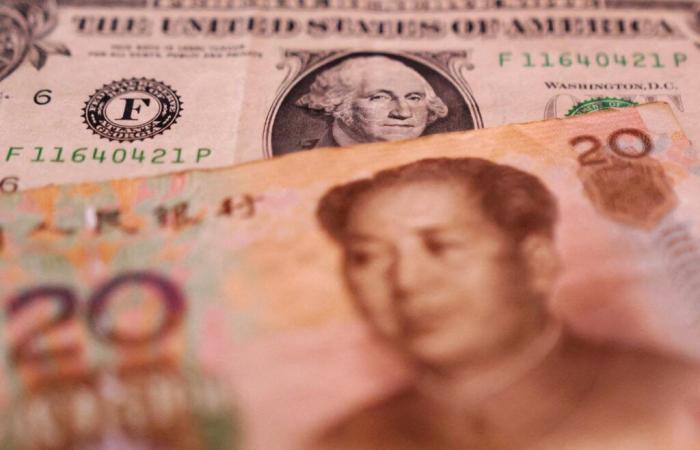LDonald Trump's first term began chaotically. The second will charge forward. During the campaign, the Republican trumpeted what he was going to do and repeated it after the election, at the same time as he announced a series of appointments consistent with the ambition of a transformative presidency. Neither China nor Europe will be able to argue that they were not warned.
On the macroeconomic level, the road map is clear: perpetuation of the tax cuts decided during the first mandate, massive expulsion of illegal immigrants and increase in customs tariffs, to a punitive level (60%) on Chinese products and up to 10% to 20% on imports from other countries. As economist Olivier Blanchard has shown, these three measures will combine to produce a major inflationary shock, which will force the Federal Reserve to increase interest rates. The expansionary effect of the tax cuts will be attenuated, the public accounts deficit, already higher than that of France, will be further increased, and the dollar will appreciate.
Read also | Article reserved for our subscribers Robert Lighthizer, the man who pushed Donald Trump into the trade war
Read later
The question is whether Trump will put pressure on the US central bank to dissuade it from raising rates too sharply. If he does, the credibility of the currency will suffer seriously, in the United States and undoubtedly beyond. One thing is clear in any case: the proceeds from customs tariffs will not be enough to fill the additional deficit induced by the perpetuation of tax cuts. The American public debt risks becoming unsustainable, which in the longer or shorter term would call into question the pivotal role of the dollar.
Privilege and duties
In the short term, the effects on Europe of this policy will be uncertain: customs tariffs will penalize European exports, but the appreciation of the dollar will have the opposite effect. Trump, however, will undoubtedly not limit himself to implementing a uniform increase in customs duties: he could differentiate them according to products and thus penalize surplus countries like Germany, or even, in the transactional logic which is his familiar, exchanging lower tariffs for a commitment to buy American weapons, or maintaining a security guarantee for European purchases of American gas. European unity will be put to the test.
In the longer term, there is little doubt about the harmful effects of a protectionist policy. A recent assessment by the Center for Prospective Studies and International Information shows that, in a scenario combining maintenance of free trade between the United States, Canada and Mexico, an increase in customs tariffs of 60 points on imports from China , and by 10 points for the rest of the world, the Chinese economy would suffer greatly from decoupling from the United States, while the impacts on Europe would remain limited. The big winner would ultimately be Mexico.
You have 48.29% of this article left to read. The rest is reserved for subscribers.






